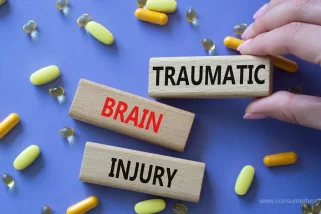The challenges of our hectic lives are increasingly impacting mental health, evidenced by the fact that one in five American adults grapples with mental illness. Fortunately, mental health is becoming less of a taboo topic, and its treatment through treatments like visiting psychologists, or therapists is becoming more common every day[1]. However, not everyone can access mental health treatment due to financial constraints and a lack of insurance coverage for therapy. Here are five alternatives to receiving mental health support if you are without insurance.

1. Slide Scale Therapy
Sliding scale therapy pricing is a fee structure where individuals with fewer resources pay a lower fee for therapy, determined based on their income. This approach, not exclusive to treatment, is also used by medical providers, dentists, and lawyers to offer more affordable payment options [2].
The client's responsibility may be directly tied to their income or relative to their income compared to the Federal Poverty Level (FPL). For instance, if a therapist charges $200 per hour, those at or below 100% of the FPL may pay a minimum fee, while those above may pay incrementally more based on their income percentage [3].
To discover therapists offering sliding scales, explore online therapy databases or contact local therapists via phone or email. If unsure where to begin, use a search engine with terms like “therapists in [your town or city] sliding scale.” Experiment with quote placement for better results.
2. Community Mental Health Treatment Clinic
Community mental health clinics are a valuable resource for accessing affordable mental health services. These clinics, staffed by psychotherapists and psychologists, provide services at minimal or no cost. Additionally, they enlist student counselors and social workers under licensed professional supervision.
These clinics offer individual and family counseling, medication management, substance use disorder counseling, and treatment for various psychological conditions such as depression, anxiety, bipolar disorder, and schizophrenia. To locate a clinic in your area, visit mentalhealth.gov[4] or contact the National Alliance on Mental Illness (NAMI) HelpLine[5].
3. Local University and Colleges
University hospitals and medical schools frequently have programs providing access to therapists in training at no cost or a reduced fee. Contacting a nearby university or college directly or checking their website for social work, psychology, or psychiatry departments can yield information on available services.
Additionally, some schools engage in specific mental health diagnosis research, allowing individuals to enroll in studies and receive free care, including therapy and medications. Numerous colleges and universities provide mental health clinics with complementary services for enrolled students.
Typically, these institutions employ graduate students supervised by licensed professionals and may offer sliding scale fees. To explore available services, it's advisable you contact your school and inquire about eligibility and offerings.
4. Support Groups
Support groups provide an affordable therapy option for those without insurance, offering a sense of community through sessions led by mental health professionals for a group of individuals simultaneously.
NAMI Connection, a free and confidential 90-minute support group, caters to people with mental health conditions. These groups can be tailored to specific needs or be more general, and it's advisable to contact the group leader before joining. Besides in-person support groups, there are also online alternatives available [6].
5. Workplace Benefits
Certain employers offer free mental health benefits via an Employee Assistance Program (EAP). Check your employee handbook or contact your HR department for EAP benefits. It's important to note that there's typically a limit on the number or amount of free EAP benefits per year. If you reach this limit, inquire about discounted out-of-pocket rates to continue receiving care from a mental health professional [7].
Conclusion
In the face of the increasing impact of busy lifestyles on mental health, accessing treatment becomes a challenge for those without insurance and low income. Fortunately, several alternatives exist, like sliding scale therapy, which provides a fee structure based on income, offering affordable options in various professions [8].
Community mental health clinics staffed by professionals and students provide low-cost services addressing multiple psychological conditions. Universities also often offer free or reduced-fee therapy through training programs for students, and some workplaces' benefits, such as Employee Assistance Programs, may provide accessible mental health support.
Additionally, support groups offer a community-oriented and affordable therapy option. Exploring these avenues can help individuals navigate mental health care without insurance.
8 Sources
We review published medical research in respected scientific journals to arrive at our conclusions about a product or health topic. This ensures the highest standard of scientific accuracy.
[1] About Mental Health : https://www.cdc.gov/mentalhealth/learn/index.htm#[2] Understanding How Sliding Scale Therapy Works : https://manhattanmentalhealthcounseling.com/understanding-how-sliding-scale-therapy-works/
[3] HHS Poverty Guidelines : https://aspe.hhs.gov/topics/poverty-economic-mobility/poverty-guidelines
[4] What is Mental Health? : https://www.samhsa.gov/mental-health
[5] Introducing The NAMI Teen & Young Adult HelpLine : https://www.nami.org/help#
[6] NAMI Connection : https://www.nami.org/Support-Education/Support-Groups/NAMI-Connection
[7] Employee Assistance Program (EAP) : https://www.opm.gov/frequently-asked-questions/work-life-faq/employee-assistance-program-eap/what-is-an-employee-assistance-program-eap/#
[8] What Is Health Insurance: Meaning, Benefits & Types : https://www.forbes.com/advisor/in/health-insurance/what-is-health-insurance/







 This article changed my life!
This article changed my life! This article was informative.
This article was informative. I have a medical question.
I have a medical question.
 This article contains incorrect information.
This article contains incorrect information. This article doesn’t have the information I’m looking for.
This article doesn’t have the information I’m looking for.